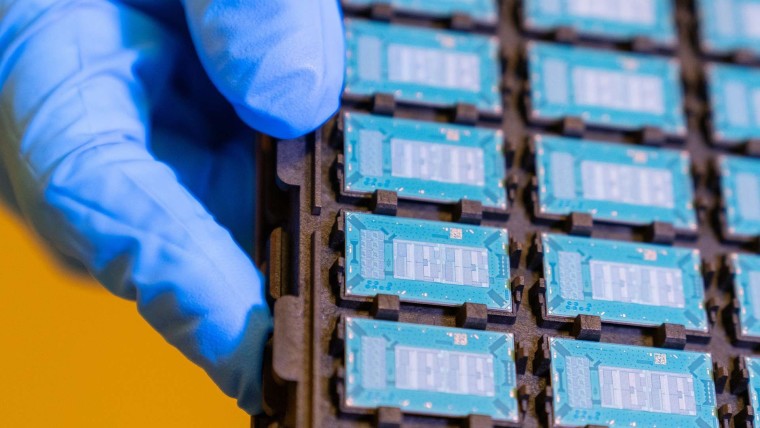As chip makers look for ways to make their products more powerful, Intel says it has come up with a different way to hold transistors in substrate packages. Currently, the company uses organic material for substrates, but today, Intel says it is developing new glass materials for these products.
In a press release, Intel says it has been researching glass substrates for at least 10 years and now feels that it could replace organic materials by the end of this decade. Intel says:
Glass substrates possess superior mechanical, physical and optical properties that allow for more transistors to be connected in a package, providing better scaling and enabling assembly of larger chiplet complexes (called “system-in-package”) compared to organic substrates in use today. Chip architects will have the ability to pack more tiles – also called chiplets – in a smaller footprint on one package, while achieving performance and density gains with greater flexibility and lower overall cost and power usage.
In addition to packing in more transistors in the same amount of space, using glass substrates has other advantages, according to Intel. They include being able to operate at higher temperatures while at the same time having "ultra-low flatness for improved depth of focus for lithography."
Intel estimates that glass substrate-based chips could have as much as 10 times the interconnect density compared to current chip packages.
If you are thinking that new Intel CPUs and GPUs could be made will glass substrates you would be correct. However, don't expect them to show up in your next gaming PC in 2024, or even 2025.
Intel says that the first chips with these glass packaging materials will be coming by 2030 for "data-intensive workloads such as artificial intelligence (AI)." That likely means this new tech won't show up in consumer and gaming PCs until a decade from now.



3175x175(CURRENT).thumb.jpg.b05acc060982b36f5891ba728e6d953c.jpg)
Recommended Comments
There are no comments to display.
Join the conversation
You can post now and register later. If you have an account, sign in now to post with your account.
Note: Your post will require moderator approval before it will be visible.